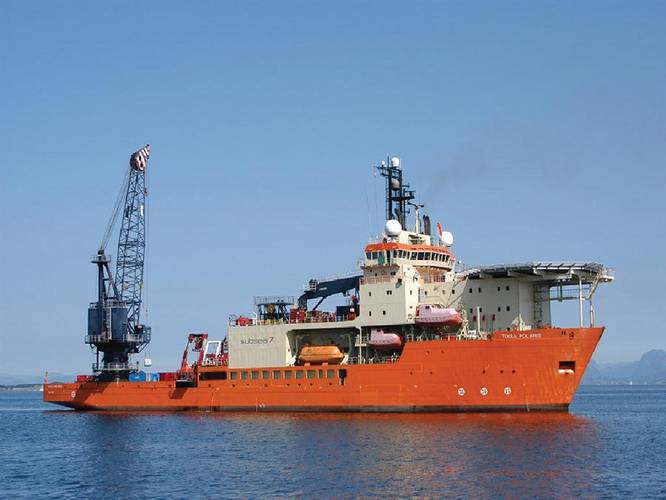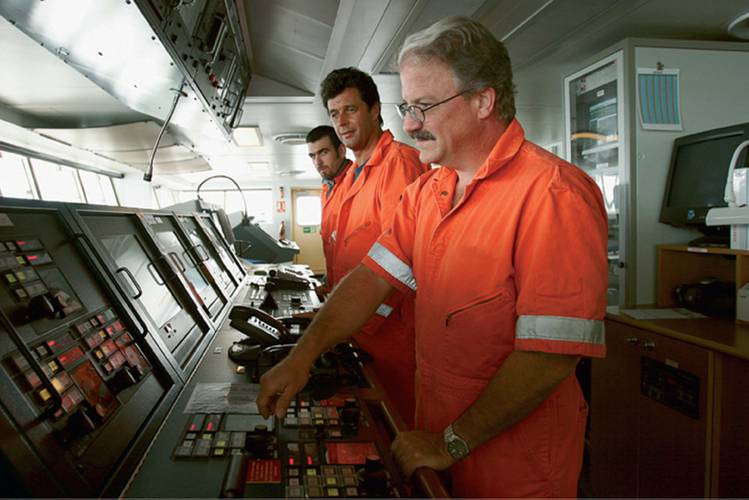Competence: the Key to Safe and Efficient Offshore Operations
A competent workforce is a productive one, and operates with fewer risks, meaning shorter downtimes and fewer injuries.
Effective competence schemes established by companies of all sizes ensure confidence in the offshore industry, and that all people appointed to safety-critical positions can carry out their jobs in an effective manner. To that end, the International Marine Contractors Association (IMCA) has established a highly effective competence assurance and assessment framework. As part of this month’s Central & North America (CNA) Section Meeting, IMCA ran a Competence Seminar ‘Building for the future: advancing competence assurance.’ Open to members and non-members alike, IMCA’s Technical Director Jane Bugler, and IMCA Technical Advisers Neil Evans and Peter Sieniewicz attended the important meeting and seminar.
Asset Protection: that means people, too
Asset protection is core to all businesses, but what greater asset is there than the people working within an organization? IMCA member companies’ demonstration of competence in safety-critical positions is absolutely vital. It’s all about managing risk to protect brand and reputation. Competence is very much a word of our era, and we are firmly committed to ensuring that it is more than ‘just a word’, and very much a ‘given’ throughout the offshore marine contracting sector, measured and appreciated throughout the industry.
The IMCA competence assurance and assessment framework enables contractors to develop in-house schemes to demonstrate the competence of their safety-critical personnel; these are designed to improve operational practice throughout the industry, while also encouraging both upward and lateral career progression.
Importantly, we are seeing a growing interest in competence assessment schemes around the globe. Earlier this year we held successful competence workshops in Aberdeen; and Kuala Lumpur, and now we have brought it to Houston, where of course we also covered the need to demonstrate competences as required by SEMS/SEMSII (Safety and Environmental Management Systems, as laid down by the Bureau of Safety and Environmental Enforcement (BSEE)).
Communicating the Core Message
The focus of these seminars, which are aimed at contractors’ competence and training representatives and their offshore personnel, as well as oil company representatives, is to deliver a program to ensure that the core messages are consistent around the world. We link the internal processes by which a company delivers its competence programs to both internal quality systems and external standards, such as ISO 9001.
The free 4½-hour seminar included a networking lunch, led by Gavin Smith of Subsea 7, Chairman of IMCA’s Competence & Training Core Committee, spoke to the seminar theme and covered the Committee’s role and an overview of its work program. Ken Wells of Safe Gulf then gave a SEMS/SEMS II overview, highlighting key differentials, including an update on Safe Gulf safety orientation training requirements; while Charlie Williams of the Center for Offshore Safety looked at ‘Impacts of SEMS/SEMS II on competence assurance’. The session also included a facilitated discussion session entitled, ‘One year on -SEMS/ SEMS II’ led by Phil Miller, Subsea & and Chairman, IMCA CNA Safety Environment & Legislation Subgroup.
Additional presentations included ‘Using IMCA’s framework to demonstrate competence of employees and contract workers,’ given by David Moxey, ACE Winches and Vice Chairman, IMCA Competence & Training Core Committee; and the second, on ‘Positive impacts of career development and competence assessment on personnel shortages,’ which saw Neil Evans of IMCA in the spotlight.
A Framework, not Rules
IMCA first developed a competence framework in 1999. It was, and remains, very definitely a framework, not a set of rules or standards. Since then we have seen acceptance and understanding of competence assessment grow globally. No longer do we have to spell out what it means in detail – although having said that, earlier this year we produced a DVD available in English, Arabic, French, Indonesia, Italian, Malay, Brazilian Portuguese, Russian, Latin Spanish and Tagalog, that looks at the ‘Why?’, ‘ What?’, ‘When?’, ‘How?’, ‘Where?’ and ‘Who?’ aspects of competence (and we have also produced a poster echoing these six key points).
As the DVD explains “Competence assurance is a continual process, it starts when you begin your career and continues until your retirement, it includes your training, your day to day work and may involve formal assessment in the workplace. Knowing your competence levels at any one time means you can demonstrate, maintain and further develop your proficiency through targeted training and on-going education.”
IMCA has produced guidance documents for the assessment of over 50 positions, with additional guidance on assessor training. Freelance and agency personnel form an important part of the offshore workforce. IMCA helps these individuals to develop a portfolio of work records and competence assessments that can be transferred from one company to the next – a full suite of nearly 60 publications has now been published for freelancers. Based on the core IMCA frameworks, the IMCA freelance materials come complete with introductory guidance, worked examples and supplementary sections to record both assessor and verifier details and comments.
We keep the competence documentation live and relevant with regular revisions; for example a revised version of our ‘Guidance on assessor training’ was published in April, offering up-to-date guidance on criteria to build in to tailored company assessor training programs. Work is also under way on a new collection of competences entitled ‘Offshore Project and Supporting Roles’. Previously any role that had not fallen within one of IMCA’s four technical divisions had been issued an as information note. These guidance documents are free for members and non-members alike to download from our website. A variety of logbooks and competence records is also available for purchase.
Competence assurance is for everyone, whatever the offshore sector. Contractors are required by clients, regulators and others to demonstrate that the individuals working for them – particularly in safety critical roles – are competent, whether experienced, new to the industry, freelance or agency personnel.
Competence schemes based on the IMCA framework ensure that no matter where, when, or who you are working with, you will be seen as a valued member of an efficient team. Good delivery relies on teamwork and trust – everyone needs to feel they are working alongside someone they trust. Any team is as strong as its weakest link, and that weak link has to be encouraged to become stronger and thus more competent and more trustworthy for the good of the whole team.
IMCA on the Web: www.imca-int.com
(As published in the September 2013 edition of Marine News - www.marinelink.com)
















